Learn why leading HR professionals trust ekincare! Explore Now
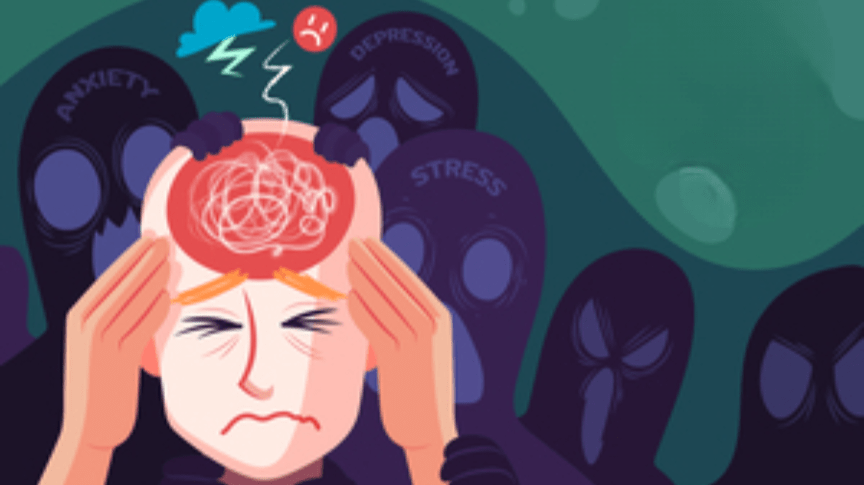
Have you ever questioned the stark statistics that reveal the hidden truths about mental health on a global scale? The World Health Organization (WHO) has assessed that India grapples with a substantial burden of mental health challenges, accounting for 2,443 DALYs (Disability-Adjusted Life Years) per 100,000 people and a 21.1 per 100,000 suicide rate, costing USD 1.03 trillion from 2012 to 2030. This highlights mental health's profound impact on individuals and the economy.
In our ever-changing world, our understanding of health must evolve. Mental health, crucial to overall well-being, often hides behind myths and misconceptions. These myths perpetuate stigma and deter help-seeking.
Join us on this journey through the intricate realm of mental health. Together, we'll confront stereotypes, replace myths with facts, and foster empathy, creating a more informed and compassionate society. Explore the truths and falsehoods that surround this vital topic with us.
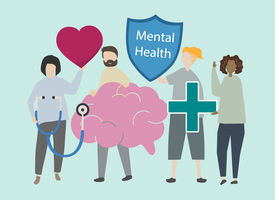
In our exploration of mental health, we first acknowledge the significance of mental health awareness, which often takes a back seat compared to physical health.
Globally, depression, as per the World Health Organization (WHO), afflicts over 264 million individuals, highlighting the widespread nature of mental health challenges.
A prevailing and detrimental myth we confront is the stigma encircling mental health, silencing those in need. Education becomes our avenue to empowerment, ensuring accurate information and dispelling misconceptions. Mental health statistics wield immense power in dispelling myths and revealing the prevalence of mental health issues.
Let's address the misconceptions head-on.

To delve deeper into the realm of mental health, we must address and dismantle common myths that persist in society.
Myth 1: “Mental health Issues Equal Weakness.”
Fact: Mental health challenges have no relation to a person's strength or character. They can affect anyone, and seeking help is a sign of resilience, not weakness.
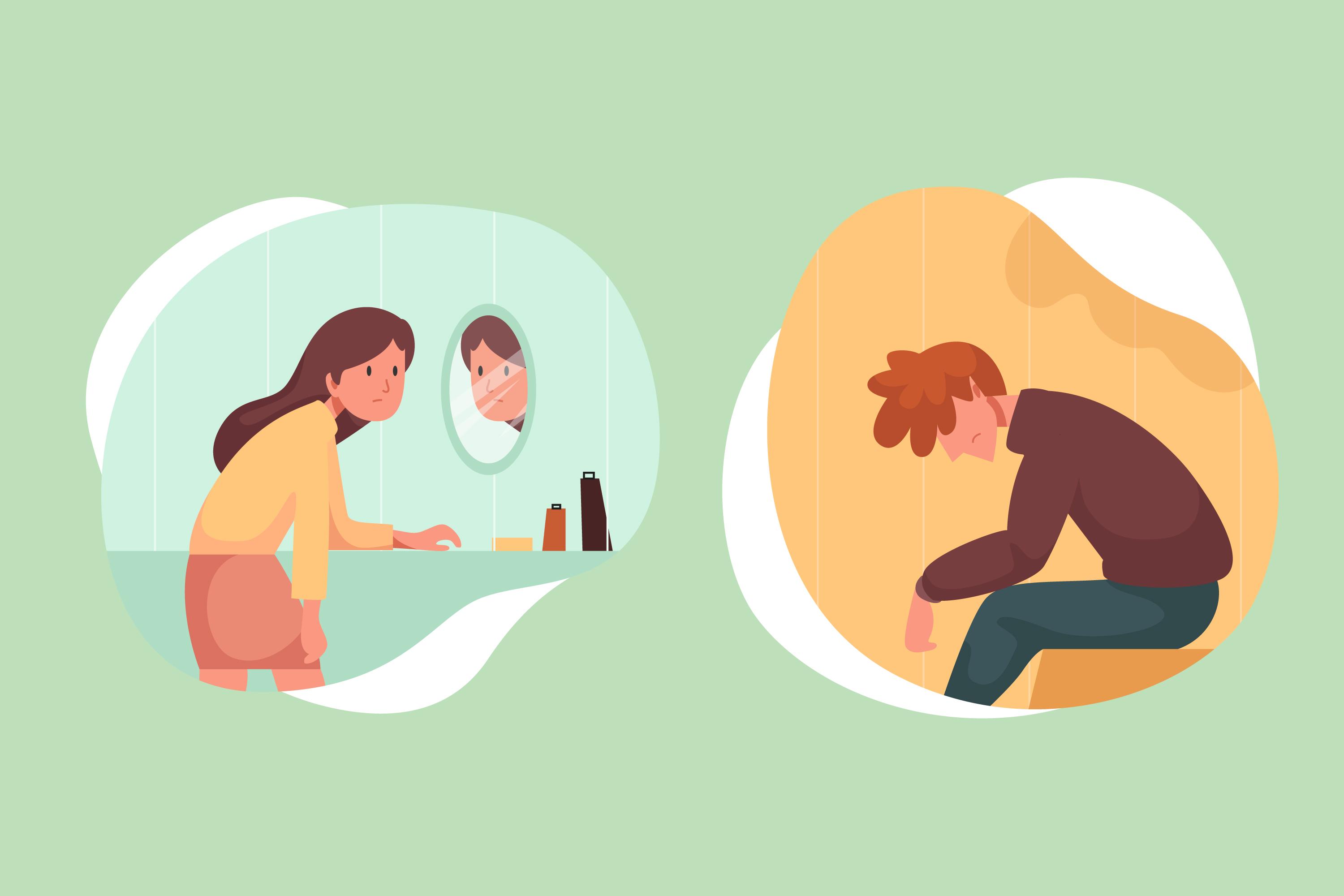
Mental health issues, including anxiety, depression, and bipolar disorder, are complex and can be influenced by various factors. Seeking help and actively working towards recovery requires courage and strength. Believing these challenges indicate weakness fuels stigma and deters individuals from seeking the help and support they need, preventing them from taking the necessary steps towards well-being.
Myth 2: “Mental Health Issues Are Incurable.”
Fact: With appropriate treatment and support, many individuals with mental health conditions can recover or manage their symptoms effectively. Timely intervention plays a pivotal role in enhancing results.

Mental health conditions vary in severity and duration, and not all of them are lifelong. Many individuals experience episodic or situational mental health challenges that can be effectively treated and managed. Timely intervention, such as recognizing symptoms and seeking help promptly, can lead to more successful outcomes. Treatment options, including therapy, medication, and lifestyle changes can significantly alleviate symptoms and improve the quality of life for individuals with mental health conditions. Each person's journey is unique, and recovery is possible.
Myth 3: “Mental Health Problems Are Rare.”
Fact: Mental health issues are incredibly common. Millions of people worldwide grapple with conditions like anxiety, depression, bipolar disorder, and schizophrenia.
Mental health issues are far from rare; they are widespread and affect people of all ages, backgrounds, and cultures. These conditions do not discriminate. By recognizing the commonality of mental health challenges, we can reduce the stigma associated with these conditions and encourage open conversations about mental health.
The Global Burden of Disease Study estimates that approximately one in five adults worldwide experiences mental illness yearly.
The above statistic underscores the commonality of mental health issues, often obscured by myths and stereotypes.
Myth 4: ‘You Can Always Just ‘Snap Out of It.’’
Fact: Mental health challenges are not influenced by one's determination or willpower. They are complex and often require professional intervention and support.

Suggesting that individuals can simply "snap out of" their mental health issues oversimplifies the complexity of these conditions. Mental health challenges involve intricate interactions of biological, psychological, and environmental factors. Willpower alone is not a sufficient remedy for mental health issues. These conditions often require professional treatment, including therapy and, in some cases, medication. Encouraging open dialogue about mental health allows individuals to seek the support they need rather than feeling pressured to overcome their challenges through sheer willpower, which can be detrimental.
Myth 5: "Discussing mental health aggravates the situation."
Fact: Open conversations about mental health are essential for reducing stigma and promoting understanding. They provide individuals with the support they need to seek help.
Silence and secrecy surrounding mental health issues contribute to the stigma associated with them. Encouraging open conversations fosters empathy and helps reduce stigma. Talking about mental health allows individuals to share their experiences and seek support from friends, family, or professionals. Taking this step can be vital as an initial step towards recovery.
In many cases, simply sharing one's thoughts and feelings can be therapeutic and provide relief. Conversations about mental health should be encouraged and met with compassion.
Myth 6: “Hinging on Medication as the Sole Solution for Mental Health Recovery.”
Fact: Medication is just one component of mental health treatment. A holistic approach that includes therapy, lifestyle changes, and support networks is often required.
Medication can be a valuable tool in managing certain mental health conditions, particularly when there is a chemical imbalance in the brain. However, it is rarely a standalone solution. Therapy, such as cognitive-behavioral therapy (CBT) or talk therapy, is often a critical component of mental health treatment. It helps individuals learn coping strategies, identify triggers, and address the root causes of their challenges. Lifestyle changes, including exercise, nutrition, stress management, and sleep, play a significant role in mental well-being. Building a support network of friends, family, or support groups can also contribute to recovery.
Myth 7: "Youth are not susceptible to mental health challenges."
Fact: Mental health conditions can manifest at any age. Early recognition and intervention are crucial for young individuals dealing with mental health challenges.
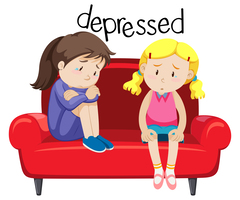
Mental health conditions can affect individuals of all age groups, including children and adolescents. These conditions can manifest differently in younger individuals and may be mistaken for typical developmental challenges. Early recognition and intervention are vital to supporting young individuals facing mental health issues. Common mental health conditions in children and adolescents include anxiety disorders, attention-deficit/hyperactivity disorder (ADHD), stress, and depression. Recognizing the signs and providing appropriate support is essential.
Myth 8: "Mental health challenges stem from individual inadequacies."
Fact: Mental health conditions are complex and result from a combination of factors, including genetics, trauma, and environmental influences. They should not be blamed for individual shortcomings.
Mental health conditions often result from a combination of genetic, biological, psychological, and environmental factors. Blaming individuals for their conditions is both unfounded and harmful. Recognizing the multifaceted nature of mental health challenges allows for greater empathy and understanding, reducing the stigma associated with these conditions. Trauma, stress, adverse life events, and a family history of mental health issues can all contribute to the development of mental health conditions. These factors are outside an individual's realm of control.
Myth 9: “Mental health issues are obvious through appearance."
Fact: Mental health conditions do not have a specific "look." Many individuals with these challenges appear outwardly healthy, making it important to be empathetic and understanding.
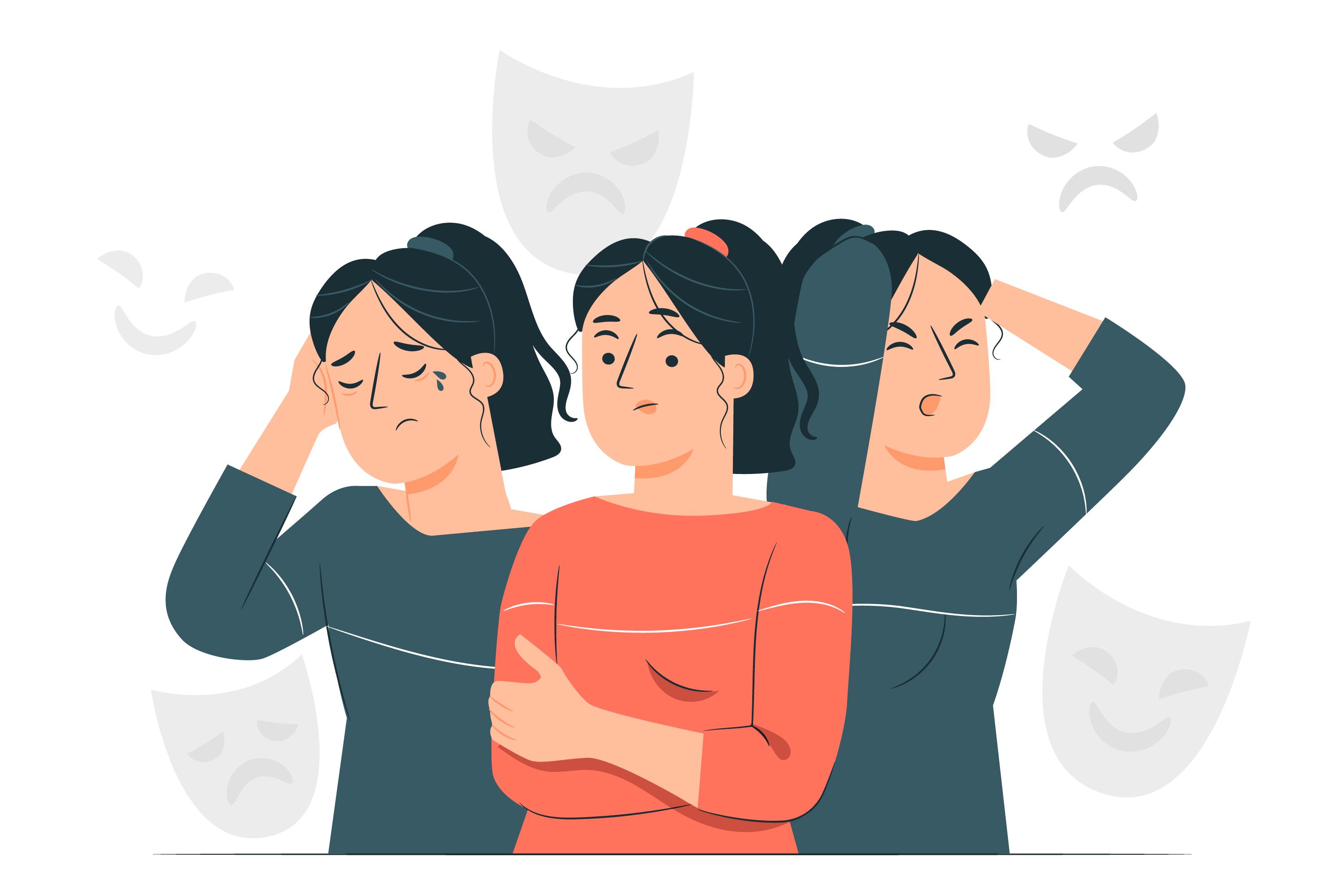
Mental health conditions do not have a specific "look." Many individuals with these challenges appear outwardly healthy, making it important to be empathetic and understanding. Unlike some physical health conditions that may have visible symptoms, mental health issues often do not manifest in an externally apparent way. Being empathetic and nonjudgmental allows individuals to feel safe discussing their mental health concerns and seeking support without fear of discrimination or misunderstanding.
Myth 10: “Mental Health Issues Are Just a Phase and Will Pass on Their Own.”
Fact: Mental health challenges cannot be expected to vanish on their own. While some may face short-term issues, others need professional assistance. Taking mental health seriously, seeking help, and promoting understanding are crucial for recovery and overall well-being.
Overcoming the myth that mental health problems fade on their own requires seeking professional help, open communication with trusted individuals, education about treatment options, practicing self-compassion, and self-care. These steps empower individuals to take control of their mental well-being and seek effective solutions.
By delving deeper into these myths and facts about mental health, we gain a more nuanced understanding of the complexities surrounding mental health challenges. This knowledge equips us to challenge misconceptions, reduce stigma, and provide meaningful support to those who may be facing mental health issues.
In closing, our journey to unveil the truths about mental health has been eye-opening. As we continue to evolve and grow, let's stand together to shatter the chains of stigma, illuminate the path to mental health awareness, and work towards a world that values mental well-being.
If you or someone you know is grappling with mental health challenges, remember that seeking professional help and support is the first step towards well-being. However, knowledge alone isn't enough; action is key. That's where ekincare steps in.
ekincare isn't just another healthcare platform; it's your partner on the path to well-being. They offer comprehensive employee wellness and healthcare management services, including vital support for mental health. ekincare's commitment to accessible mental health support aligns perfectly with our mission to challenge myths and reduce stigma. With ekincare by your side, you'll never face your mental health journey alone.
Discover how ekincare can make a difference.
Learn how your organisation can get the best employee health and well-being experience with ekincare`s commitment to quality.